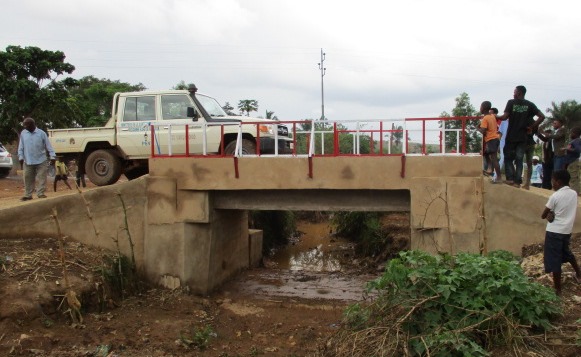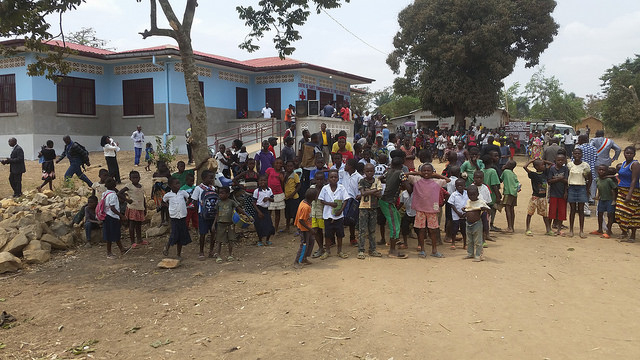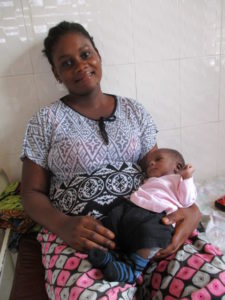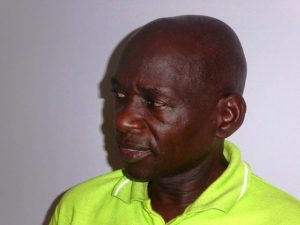
A new bridge connects the two parts of Kwilu Ngongo, providing a reliable access to the Mother and Child Hospital.
In many parts of the world thousands of people die from causes that would be preventable if they had basic services like clean water, sanitary toilets and access to simple healthcare procedures and medicines. In places that do not have these infants often die of diarrheal disease and mothers, often too young to safely carry a child, die from complications related to pregnancy and childbirth.
With only one physician for every one million people, the Democratic Republic of Congo is one of the most unsafe countries for pregnant women and infants. For every hundred thousand pregnancies, six hundred and ninety-three girls and women die; and almost seven percent of babies die before their first year.
Susila Dharma DRC has been working with the international SD Network to gather the capital needed to create healthcare centers that, in spite of obstacles, are succeeding in treating hundreds of thousands of Congolese citizens.
Susila Dharma DRC, supported by the tireless work of the SD International Association (SDIA), SD Germany, and SD France have been the chief organizers of this effort, with major financial assistance from the German Government and the Buchan Family Foundation. SD USA’s contribution allowed advisers from the SD Network to travel to the Congo to help with the design and construction of the hospitals and the organization of the health insurance plan which make healthcare affordable in these CSCOMs (healthcare centers). These advisors also helped bring together the Congolese government, the hospital administration and—perhaps the most innovative idea—councils of advisors from the local communities.

Children outside the Kwilu Ngongo CSCOM at its inauguration on September 25, 2017.
Photo: Viktor Boehm
A little over a year ago The Mother and Child Hospital at Kwilu Ngongo opened its doors. The demand for medical services was immediate. Huge numbers of children—mostly local, but some from distant regions—were brought in for treatment. Many have been saved through timely interventions at the hospital.
Salomon Dianteza Dimpiokia, Congolese physician and the hospital’s chief organizer, writes,
“The hospital is very busy. In fact, children and women are sometimes taken to a nurses’ storage space for care because there are not enough beds.”
But health services also require human resources. In addition to the new annex, there are plans for the professional development of the hospitals doctors, nurses and staff as well as for the community governance body—workshops to deliver the training that is crucial for success.
Construction of the Mother and Child Hospital at Kwilu Ngongo was completed in the Spring of 2017. The hospital has been open for 14 months and already demand exceed the building’s capacity.
SD USA is being asked to help with this expansion, and we hope to be able to give generously. But we can’t do it without support from our members. The Mother and Child Hospital is an example of how projects led by Subud members are able to inspire people, even government officials and other non-profit organizations, to help bring important projects to life.



